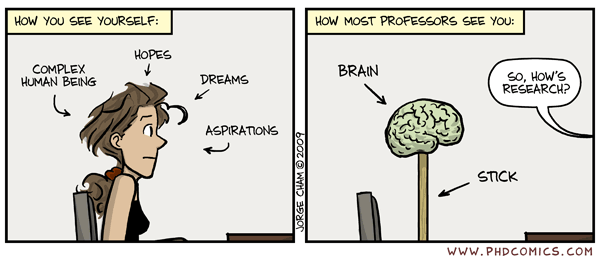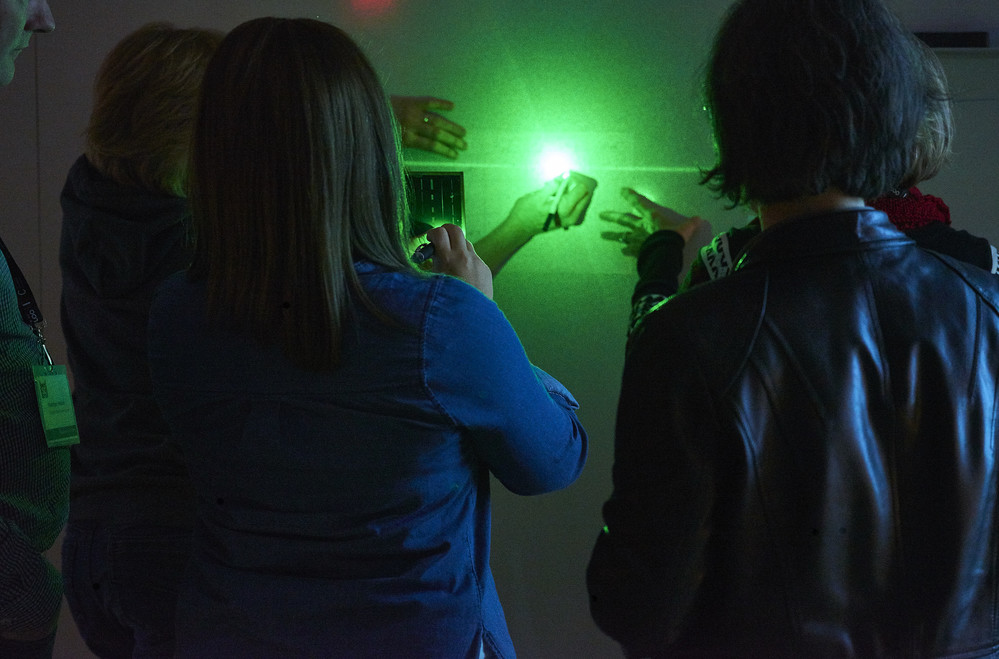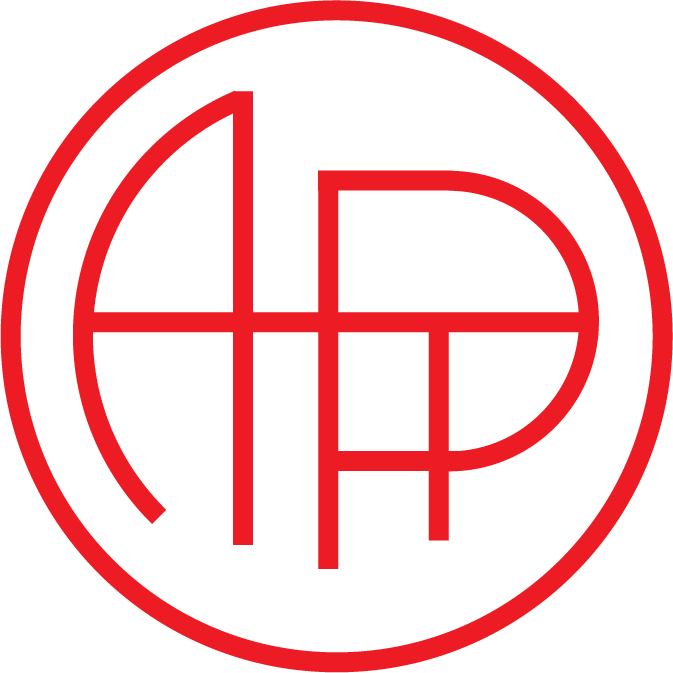December 26, 2024 Filed in:
ArticlesDr. Carolyn Sealfon, Minerva University
csealfon@metalearning.ca
Wellness and mindfulness act as buzzwords these days, often seen as separate from physics. Yet we know they are important, and everything is related to physics! In this article, we will consider a few simple classroom activities that can both help students internalize the basic physics of forces and motion and also help facilitate well-being in our classes.
As Brookes, Etkina, and Planinšič argue, it is helpful to clarify our intentions as physics instructors and to align our instruction with our intentions. One valuable intentionality they propose is, “The way in which students learn physics should enhance their well being.” This intentionality underlies the renowned Investigative Science Learning Environment (ISLE) approach to teaching high-school and first-year university physics (Brookes et al., 2020).
As physics instructors, one way we can integrate well-being and physics is through inviting students to feel the physics that they are learning in their bodies. When we are asked, “What do you teach?” we usually respond, “physics,” when really the answer is “human beings”. Very often, especially in physics, we and our students can get “stuck in our heads” and almost forget we are whole human beings.
 Image from "Piled Higher and Deeper" by Jorge Cham, www.phdcomics.com, used with permission. Read More...
Image from "Piled Higher and Deeper" by Jorge Cham, www.phdcomics.com, used with permission. Read More...Tags: Forces, Motion, Pedagogy
December 02, 2024 Filed in:
AnnouncementsEric Haller, Peel District School Board, Editor of the OAPT Newsletter
eric.haller@peelsb.com
We are once again looking for submissions to the OAPT Newsletter. Our newsletter is made possible by volunteers who contribute their thoughts and ideas for others to use in their classrooms. Many of our writers are Ontario high school teachers, however some of our writers teach in university, work abroad, work in science outreach, have retired, or have even left the teaching profession for some other career that involves physics. We have numerous writers who pen something for us regularly, but we are always on the lookout for new writers as well!
If you’re interested in writing for us but aren’t sure what you could write about, consider some of these topical themes in physics education:
- How are you taking advantage of AI in your physics classroom?
- How are you combatting the misuse of AI in your physics classroom?
- What fun things have you been doing with the destreamed grade 9 science course?
- How have you been incorporating climate change into your physics courses?
In addition to those current topics, we are always looking for articles involving these timeless topics:
- Physics education research
- An interesting lesson, demo, activity, or project you did with your students
- How you teach physics differently than other teachers
- How you assess students differently than other teachers
- Some resource, equipment, software, website, film, or book that you found useful for teaching physics
- Social justice issues that pertain to physics (correcting the gender imbalance, disrupting systemic racism, BIPOC scientists and where they fit into the curriculum, and so on)
- Explanations of big, new physics announcements, and how to make it accessible for students
- A lesson you did which incorporated interesting historical events and perspectives
- Professional development opportunities for physics teachers
- Something that another physics teacher did or wrote about that inspired you
- Preparing students for careers in physics
- An interesting field trip or virtual field trip you took your physics class on
- Something you presented at a recent OAPT conference that you wanted to share with a wider audience
Read More... October 27, 2024 Filed in:
ArticlesChris Meyer, Past President, OAPT
c.meyer@bell.net
We want our students to become confident, fluent users of physics. We want them to develop good, reliable habits that will carry them through our physics classes and beyond. But very often, students become stuck on the habit hump! What is this mysterious hump? It is an analogy I use for our experience of the learning process and how we react and respond to it. If students better understand the learning process, my hope is they will make better decisions be more likely to stick to their learning. So, what is the habit hump and how do we get over it?
Read More...Tags: Optics, Pedagogy
October 25, 2024 Filed in:
AnnouncementsRachel Richardson, Education & Outreach Coordinator
outreach@snolab.ca
Everybody loves a mystery, and dark matter is one of the biggest mysteries in our universe today. SNOLAB is Canada’s deep underground science laboratory that hosts large, international experiments; some of these experiments are designed to help unravel the mystery of dark matter. To celebrate Dark Matter Day, a public outreach initiative celebrated during Halloween, SNOLAB is hosting a creative poster design contest. Students and members of the community are invited to design original, two-dimensional visual artworks, in any medium, exploring the theme of dark matter.
Participants can be as creative as they like, letting their design shine as bright as the stars! Imagine an individual dark matter particle, or how it holds the universe together! They could draw an existing detector, dream up their own cosmic blueprint for an experiment, or travel deep into space following their imaginations into the oldest parts of the universe.
Read More...Tags: Contest, Modern Physics
October 09, 2024 Filed in:
AnnouncementsJohn Donohue, IQC Senior Manager, Scientific Outreach
jdonohue@uwaterloo.ca
Date: November 18-21, 2024
Location: Online!
Hosted by: Institute for Quantum Computing, University of Waterloo, Ontario
With 2025 announced as the
International Year of Quantum Science & Technology, there’s never been a better time to bring quantum science to our students. To help prepare educators no matter where they’re located, we’re excited to host a series of
virtual sessions on how to connect quantum technology to the curriculum, hosted by the Institute for Quantum Computing (IQC) at the University of Waterloo.

These sessions will take content from our long-running Quantum for Educators (QEd) workshop to explore fundamental quantum principles like superposition and entanglement, connect them to curriculum-relevant topics like waves, polarization, vectors, and probability, and show how they are applied in modern and emerging technologies like quantum computing and communication. We’ll also overview affordable hands-on activities that can be done with your classroom.
Read More...Tags: Modern Physics, Nobel Prize, Professional Development, Quantum
September 18, 2024 Filed in:
ArticlesMichelle Lee, Lisgar C. I.
michelle.lee@ocdsb.ca
Iain Braithwaite. John F. Ross C.V.I.
iainbraithwaite@ugdsb.on.ca
Milica Rakic, Essex DHS
mica@opusteno.com
Roberta Tevlin, Retired
roberta@tevlin.ca
Climate change may be the biggest problem that humanity has ever faced. The sooner that we deal with it, the more chance we have of succeeding. Physics teachers can play an important role in helping students understand the problem and its existing solutions, and help students feel empowered to take action. This article shows how you can teach about climate change, while reinforcing fundamental skills and concepts in the grade 11 physics curriculum. As usual, these OAPT resources are free.
Read More...Tags: Climate, Electricity, Energy, Forces, Kinematics
September 11, 2024 Filed in:
AnnouncementsRoberta Tevlin
roberta@tevlin.ca
Join us Thursday September 26th from 7:00 to 8:00 PM to learn about the many solutions to climate change, while engaged with other teachers in a role-playing game! By the end of the hour, you will see how climate change is very serious and very complicated —
but — it is also something that can be solved. You will leave energized and ready to try out this lesson with your classes the next day. This game would be good for SNC1W, SNC2D, SPH3U, SES4U, many geography courses, or anywhere else you want to discuss climate solutions.
This virtual Physics Hour is run by Roberta Tevlin, Milica Rakic, Iain Braithwaite, Michelle Lee, Tim Langford, Tom Eagan, and Felipe Almeida. Sign up for the event
here. Please share this opportunity with others who you think may be interested in joining. The Zoom meeting link will be sent out 48 hours prior to the event.
Read More...Tags: Climate, Destreamed, Energy, Professional Development
July 22, 2024 Filed in:
ArticlesJohn Caranci, Ontario Institute for Studies in Education/U. of T., CTL Lecturer Intermediate/Senior Physics, Chemistry, Science
john.caranci@utoronto.ca
A while ago when I taught high school my grade 10 Science class came into my classroom after my grade 11 physics class had left. I had just done a lesson on the development of the kinematic formulae using graphing. One of my grade 10 students seemed mesmerized by the boards covered in figures and diagrams. They turned to me and asked what was on the board. I said kinematics, which is part of the grade 11 physics course. Their response was “I guess it will be biology next year for me.” What makes kinematics like this? Is it the mathematics? Is it the lack of relationship to the real world (ignoring friction)?
I began playing with alternatives to present the topic. I recognized it was not the authentic or real-world connections, it appeared to be the arithmetic. Notice, I did not say the mathematics or physics. Many times, a simple arithmetical mistake (even to the point of a miss-written minus sign), might cause them to believe that their whole solution, and therefore their understanding of kinematics, is wrong.
When a student approaches a kinematics problem, they usually draw the sketches and list what’s given and what’s required. Then they choose the formula. That is where the physics ends, and the arithmetic starts. As physics teachers, do we assess physics or arithmetic?
Read More...Tags: Assessment, Kinematics, Math, Pedagogy
June 24, 2024 Filed in:
ArticlesRoberta Tevlin (retired physics teacher)
roberta@tevlin.caClimate change is an incredibly complex and serious problem. Many people avoid thinking about it because it seems so hopeless. This article is an introduction to something that will help you and your students see a way out of the mess. En-ROADS is a simulator of climate solutions from MIT. It is powered by over 20,000 simultaneous equations. It is a tool designed for business and government policy makers — but it can be used with grade-9 students. It is free and updated every couple of months.
Do yourself a favour and go to
https://www.climateinteractive.org/ and select EN-ROADS, the first large button available. Play around with the simulator for a bit and then come back to this article to learn how you can use it.
Read More...Tags: Climate
May 10, 2024 Filed in:
ArticlesDale Simnett, Peel District School Board
dale.simnett@peelsb.com
Friends, Peers, Physics Teachers,
The use of video in physics as a means of teaching and learning is as old as optic obscura. I’m sure most physics teachers have a video analysis project that they can dust off and give to their students. Identifying the terrible physics in cartoons, superhero movies, or more recently, the Fast and Furious series, is a right of passage in physics teaching!
Observing the world, making measurements, and trying to make sense of what we see is at the heart of physics. Why not make that a goal in our teaching as well as our assessment? I propose using a video analysis as an end of unit assessment.
Why should you try video analysis as an assessment? Here is my case.
Read More...Tags: Assessment
March 19, 2024 Filed in:
ArticlesDr. Robert Cockcroft, Assistant Professor / Director, William J. McCallion Planetarium / Secretary, Canadian Astronomical Society (CASCA)
cockcroft@mcmaster.ca
Hamilton and McMaster University are lucky to be positioned along the path of totality for the upcoming April 8th eclipse, and as such, both have been preparing for it for some time now. McMaster’s Provost has purchased 600 000 solar eclipse viewing glasses, enough for every Hamiltonian, so that you can use them to view the Sun while it is partially covered by the Moon leading up to, and after, totality. These free viewers are available while supplies last at the Hamilton and Haldimand library branches, the McMaster University libraries, and the Burlington libraries. They are also being distributed through participating school boards.
Why do total solar eclipses capture the imagination of so many people, whether or not you’re in science? I offer three answers that spring immediately to mind.
Read More...Tags: Astronomy, Diversity
March 13, 2024 Filed in:
AnnouncementsJohn Donohue, IQC Senior Manager, Scientific Outreach
jdonohue@uwaterloo.ca
Date: July 29-31, 2024
Location: Institute for Quantum Computing, University of Waterloo, Ontario
The Institute for Quantum Computing (IQC) at the University of Waterloo is excited to announce our 2024 free in-person summer workshop on quantum mechanics and quantum technology.
The 10
th Quantum for Educators (QEd) workshop (formerly known as Schrödinger’s Class) will take place July 29-31 this year. Led by quantum experts from the IQC, QEd will explore fundamental quantum principles like superposition, wave-particle duality, and entanglement and show how they are applied in emerging technologies like quantum computing. Participants can expect to leave with affordable activities and accessible lesson plans with concrete curriculum connections to take back to their classrooms.
Financial support for travel and accommodations is available for Canadian teachers. Applications are due Friday May 3rd.
Tags: Modern Physics, Quantum, Professional Development
March 09, 2024 Filed in:
ArticlesOrbax, Production Specialist for Physics Education Content, Dept of Physics, University of Guelph
orbax@uoguelph.ca
Greetings educators! Orbax here from the Department of Physics at the University of Guelph.
I’m here to speak to you today about a very important topic.
You’re likely aware of a newly discovered disease that has been sweeping across Ontario in the last few weeks.
Eclipse fever has taken hold and it’s taking over news broadcasts, school board meetings, targeted ads and classrooms throughout our province.
Read More...Tags: Astronomy, History, Safety
February 11, 2024 Filed in:
ArticlesOlga Michalopoulos (Retired)
michalopouloso@hdsb.ca
A rare phenomenon that only comes around once in a lifetime is set to take place in Ontario this spring. A total solar eclipse on Monday, April 8, 2024 will turn daytime into darkness in Ontario, and we have an opportunity to share this experience with our students. The last time a total solar eclipse took place in Canada was August 2008, but it was only visible in Nunavut.
Did you know that the chance of seeing a total solar eclipse in any one location on the Earth is about once every 400 years? For instance, the next total solar eclipse to be visible in the GTA won’t occur until
October 26, 2144! This is why it’s referred to as a “once in a lifetime” event.
First, a little astronomy background. A solar eclipse occurs when the Moon passes between the Earth and the Sun, casting a shadow on the Earth that either partially or completely blocks the light from the Sun on the areas of the Earth where the shadow falls.
Read More...Tags: Astronomy
January 24, 2024 Filed in:
ArticlesShawn Brooks, UTS (University of Toronto Schools)
sbrooks@utschools.ca
With just a little coaxing, and a little help from their calculators, our grade 10 science students can use a simple energy-balance type of climate model to calculate the average temperature of a planet.
With this activity, your students will be able to calculate
what the earth’s average surface temperature would be if it didn’t have a greenhouse gas containing atmosphere.
This one-period activity can show your students how the numerical value of Earth’s albedo (0.3) is very meaningful to our planet’s temperature! If you are looking to inject a little more physics into your
Earth and Space Science: Climate Change unit, this might be the thing for you.
Read More...Tags: Climate, Energy



